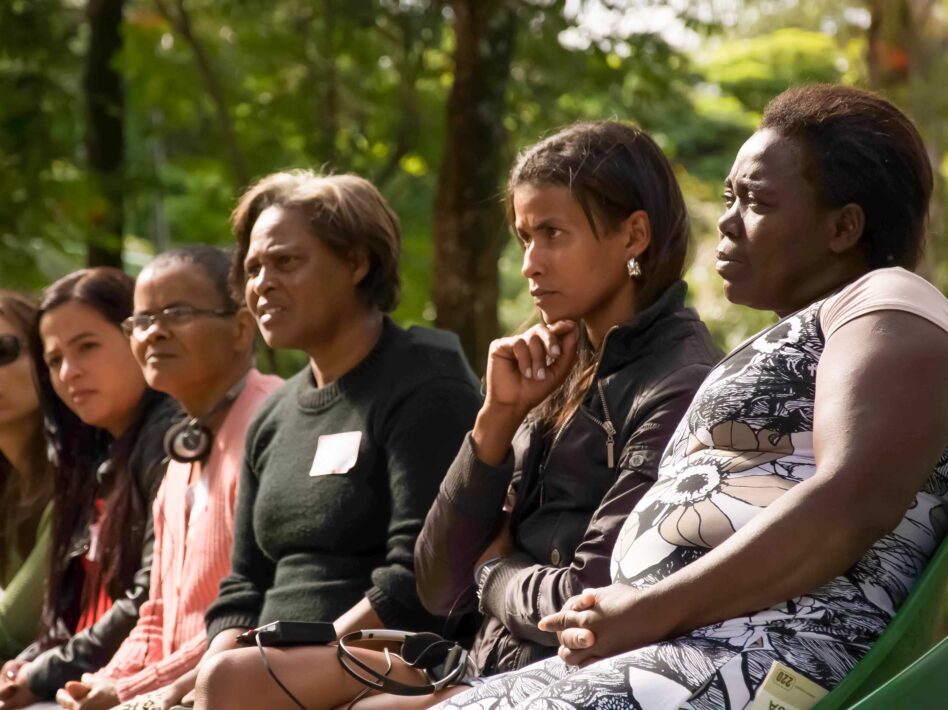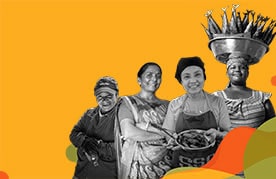Across Africa, Asia and Latin America, women are more likely than men to be in informal employment and are found in low paid and vulnerable forms of work. Organizing women workers and supporting their leadership aligns the movement with what is most sustainable in the long term – gender-balanced membership, democratic leadership, and fairness in representative spaces.
Women's Leadership
Understanding WIEGO's Work in Women's LeadershipWIEGO is committed to supporting women workers in informal employment to raise their voices and demands in their organizations and at the negotiation table with employers and governments.
Why Is Women's Leadership Important for Workers in Informal Employment?When women workers lead through an intersectional lens rooted in democratic practice and economic justice, movements can bring about systemic change. This allows all workers to access the resources they need and impact the broader policy, regulatory and institutional environment that shapes their lives and working conditions.
Women workers in informal employment experience discrimination based on several intersecting identities, including class, gender, race, caste and ethnicity, age, ability and migration status. These multiple forms of inequality create a set of circumstances that limit women’s access to leadership roles. For example, women migrant street vendors in many countries cannot join a union and may be barred from leadership. They are unable to voice their needs and demands so as to inform the broader movement.
Resources Related to Women's Leadership
Discover Our Themes
The following themes represent areas of strategic focus for WIEGO.

